A Wave of Growth Lifts the Oceans Sector as Computer Training and the Commercialization of Research Gain Attention
April 8, 2021
By Carol Moreira
March saw developments in the nascent oceans sector, alongside a fresh focus on addressing the shortfall in trained IT talent and boosting research with commercial potential. Diverse companies dug into their niches, and a new network got behind BIPOC founders.
Funds Emerging for Oceans
Organizations supporting the region’s ocean economy are encouraged by the growth of international funds targeting maritime innovation.
To date, the region’s oceantech ventures have attracted little equity capital, but Malcolm Fraser, CEO of Innovacorp, said growth is occurring.
“There’s no question from a global point of view there is a significant amount of capital that really likes the blue challenge,” Fraser told Entrevestor. “There’s an understanding that we have to make sure our oceans and the companies in them are cleaner, safer and better.”
At the end of 2020, Entrevestor recorded 101 oceantech ventures, about two-thirds of them younger than two years.
Local people and groups like Innovacorp are also backing ocean startups.
“In the past year, Innovacorp has made over $3 million in ocean investments,” Fraser said. “And in two years we have gone from 17 companies in our potential pipeline to over 80.”
The Creative Destruction Lab program, which links young companies with mentors and investors, is also channeling capital into oceantech.
CDL-Atlantic is currently running its first Oceans stream and has attracted members from California to Norway.
Jeff Larsen, the regional Site Lead, said relationships often become investment opportunities, and several financings are already completed with others in progress.
Canada's Ocean Supercluster, which works to modernize Canada’s ocean economy, named three Nova Scotian projects with a value of about $10 million.
The projects include enhancing data analytics in ports, a project led by BlueNode, and creating a nutritious oil made from algae, led by Mara Renewables Corp. An underwater acoustic monitoring system is being developed by Ontario-based Sensor Technology, working with 3D Wave Design and Kraken Robotics.
Meanwhile, Planetary Hydrogen won the annual pitching event and $2,000 prize at Start-Up Yard at COVE.
Planetary Hydrogen’s dual-functioning system produces hydrogen, which is increasingly popular as a clean fuel, and injects bicarbonate into oceans to reduce water’s acidity and capture carbon.
Andrew Ray, Innovacorp Vice-President of Investment, said the company’s solution “really connects with two of the big challenges in the world – clean energy and clean oceans, and it does it in a way that is financially attractive.”
The contest’s $1,000 second prize went to Glas Ocean Electric, a maker of boats that use electric propulsion.
Third place of $1,000 went to Sedna Technologies, which helps automate the seafood supply chain away from reliance on paper records.
Also, the Ocean Startup Project is seeking applicants for the second cohort of the Ocean Startup Challenge accelerator which will provide prize money of up to $1.4 million.
Last year, its first, the Challenge put up $350,000 in prize money and educated 14 companies, most of them Atlantic Canadian.
"This year's Ocean Startup Challenge will build on the momentum we are seeing in Canada's ocean sector by drawing out innovative ideas and accelerating the development of new ocean tech companies," said Ocean Startup Project Executive Director Don Grant.
The new cohort features special awards for Women Entrepreneurs, Indigenous Founders, and for startups that make technology for ocean sustainability.
Tribe Focuses on BIPOC Founders
A network called Tribe has been established as a national entrepreneurship and innovation hub for BIPOC innovators.
Created by social entrepreneur Alfred Burgesson, the network has already built partnerships with major incubators and accelerators in the region, including Halifax innovation hub Volta, Dalhousie and Saint Mary’s Universities, Nova Scotia Community College, and ONSIDE.
"This initiative is about empowerment, and creating the environment for BIPOC entrepreneurs and community leaders to have greater access, pathways, opportunities to participate in the ecosystem and to create with one another," Burgesson told Entrevestor
Tribe is also linking with Volta, Ulnoweeg, and BBI (the Black Business Initiative) to onboard Boost participants onto its platform. Boost is a new program to support Black and Indigenous entrepreneurs.
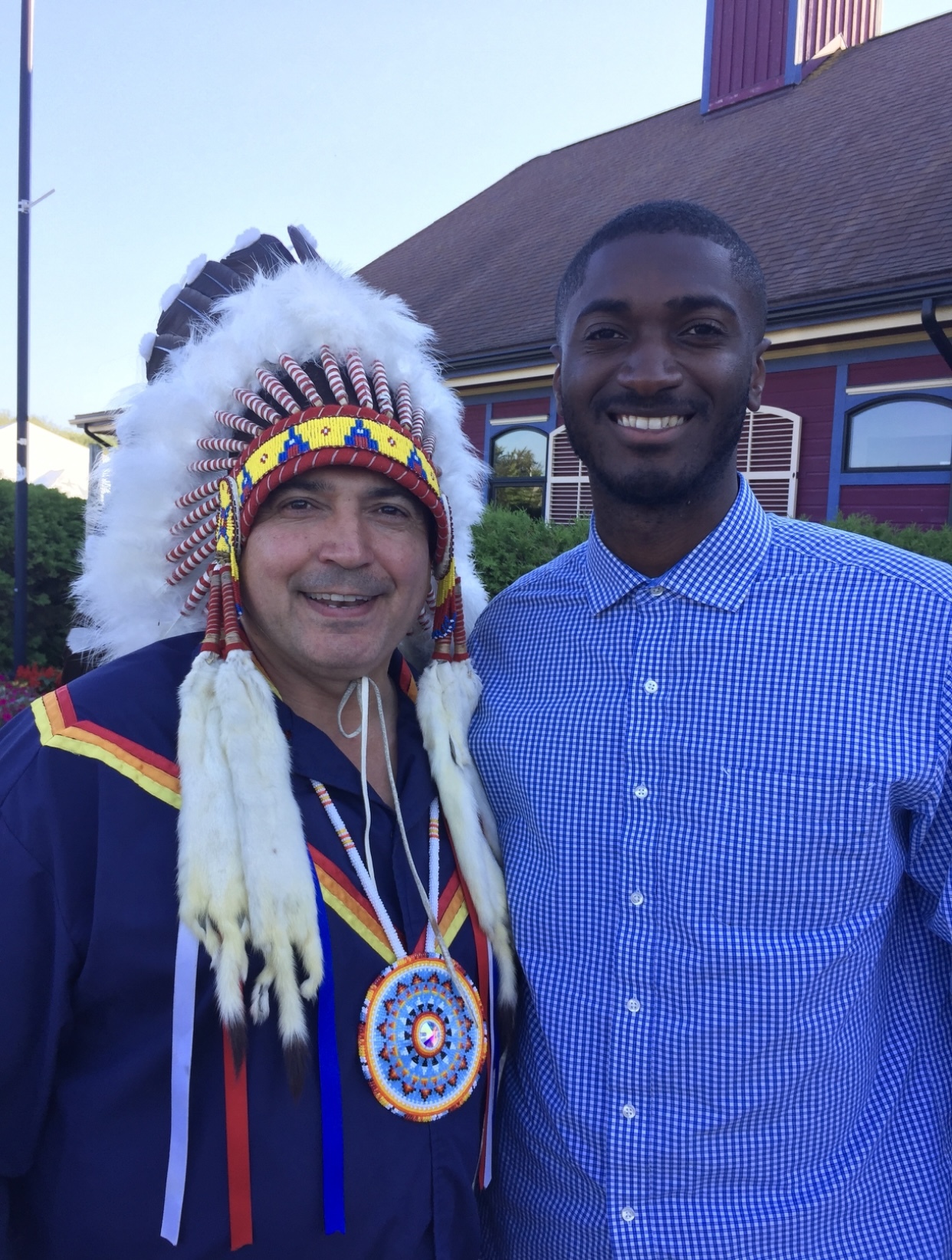
Computer Science and Lab2Market Expand
Dalhousie University is boosting Computer Science enrollment with $13.3 million in funding from the province.
University President Deep Saini said the Dal Faculty of Computer Science currently grants about 250 graduate degrees annually and this will be boosted to 400 in coming years. Dal also aims to attract equal numbers of male and female students and professors to the faculty.
The provincial government is spending $16.8 million over four years to help four Nova Scotia universities boost their computer science programs. With the largest computer science department in Atlantic Canada, Dal is receiving most of the funding.
The province said the pandemic has accelerated digital adaptation and that producing more digital talent will strengthen the startup ecosystem.
“Digital talent, in the form of software developers and computer scientists, is what drives digital adoption across industries, accelerates startups, and attracts new digital industries to the province,” said Dal Dean of Computer Science Andrew Rau-Chaplin in a report in Dal News.
Saini said Dalhousie will match the province’s money dollar for dollar, with the aim of reducing the 1,500-job gap between open positions for IT personnel in Nova Scotia and graduates.
“We are bursting at the seams with the demand for technical jobs,” Saini told Entrevestor.
Also at Dalhousie, 23 teams from 11 universities were accepted into the winter cohort of Lab2Market, the biggest representation in the program’s history.
Modeled on similar programs elsewhere, Lab2Market started in 2020 to help academic researchers determine if their research could become the core of a business. Dalhousie is one of three universities piloting Lab2Market with the intent of taking it national.
The fifth cohort of the pilot includes researchers working in areas such as pharmacology, chemical and petroleum engineering, plant science and neuroscience.
“After the Fall 2020 cohort, we saw 85 percent of participants identify that their research had commercial potential, with 91 percent interested in starting their own company,” Alice Aiken,
Dal’s Vice-President of Research and Innovation said.
Digital Performances Boost Side Door
When the pandemic broke out, entrepreneur Laura Simpson realized Side Door’s business model had to change. Now, the Co-Founder and CEO is celebrating a 3,000 percent increase in ticket sales.
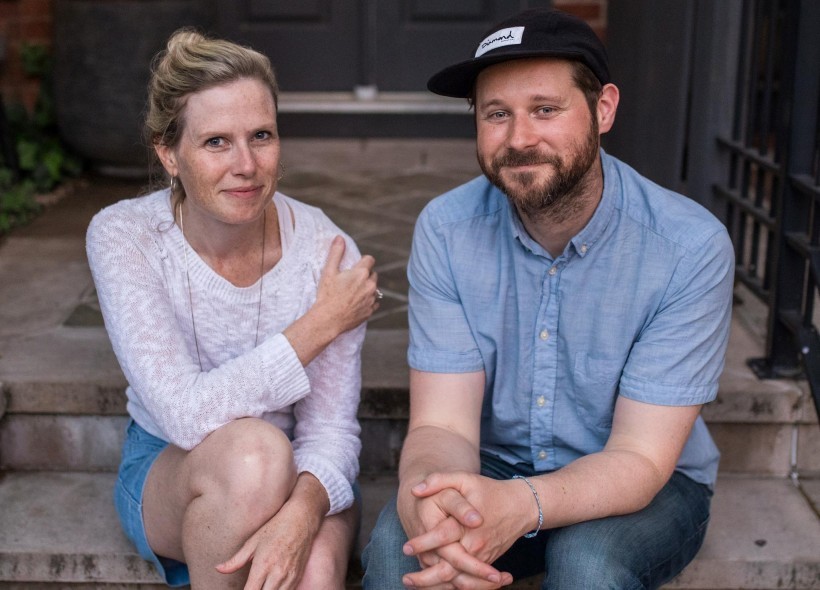
Before COVID, Side Door paired musicians and artists with small venues, most often people’s homes. The pandemic meant a shift to virtual concerts and Side Door has now hosted more than 800 virtual shows and experienced the boost in ticket sales, which equates to more than $1 million in revenue.
Growth was enabled by asking audience members to set up an account, Simpson told Entrevestor.
“Now we have dedicated audience eyeballs on every show that we put out, so we can remarket to all of those 50,000 audience members.” She said the site is acquiring around 6,600 new users every month.
Simpson does not plan to end the new model with the pandemic, believing the venture has unlocked a fresh audience.
“…what I’ve noticed is that people in rural places, countries where artists don’t often tour, people who are bound to their houses for whatever reason – all of these are the kinds of people we see online,” she said.
Dragons’ Den Investor Backs Outcast
Outcast Foods, which creates powdered food products from rejected fruit and veg, completed a $10 million funding round, half of which came from the fund led by Arlene Dickinson, a well-known participant on CBC’s Dragons’ Den.

With the money, Outcast will grow its plant in Dartmouth and build one in Ontario that will be able to generate up to $30 million in annual revenue and allow the company to pursue more international clients.
Dickinson’s fund, District Ventures Capital of Toronto, made an equity investment of $5 million in the rapidly growing company, and BDC Capital, the venture arm of the Business Development Bank of Canada, provided another $5 million equity investment.
"We are pleased to support a company that not only addresses the problems of food waste but is creating a future world rooted in sustainable food production," Dickinson said.
Snorble Lulls Kids to Sleep
Sleep-deprived parents are among those backing Snorble, an automated bedtime companion for toddlers. Snorble has raised almost $200,000 in an Indiegogo campaign that aimed for around $31,500, and the campaign hasn’t even finished yet.

A teddy bear-sized toy, Snorble uses voice recognition software and AI to help children with bedtime routines like brushing teeth. The device can also read kids a bedtime story.
Designer Mike Rizkalla, a father of two, told Entrevestor that the fundraiser began with a list of 40,000 interested parents, and that Indiegogo designated it a high-impact campaign.
“It means they’re going to support us by promoting us within their community and they believe this is going to be a grand slam,” Rizkalla told Entrevestor before the campaign began.
Snorble’s screen can show animation and stories, but doesn’t emit blue light known to revive people at bedtime. It can project moving lights and play gentle music and also acts as a sleep monitor, alerting parents when children wake.
“We’re using all the base-level science but we’re adding in some special features which are meant to make Snorble fun,” said Rizkalla, who plans to develop a more advanced Snorble for older children.
The company has also raised $1.14 million in capital from investors.
Frenter Links Owners and Renters
A site that facilitates the renting of property such as leisure equipment is being launched by young innovator Zachary Laberge.
Laberge, aged 15, has already raised $70,000 and is currently taking his site, frenter, through the program run by Propel, all while studying at École Secondaire du Sommet.
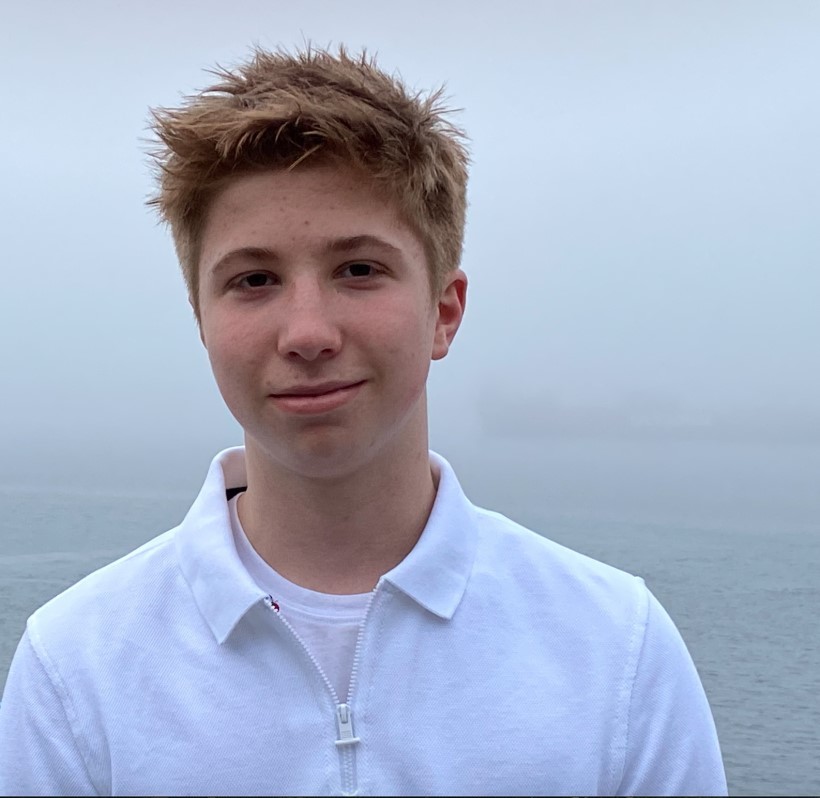
Laberge sees owner-users as mature people who have acquired items they don’t want to sell, while renters are, “likely to be adventurers and weekend warriors who want to try new things.”
“The idea is to try it all without having to buy it all,” he told Entrevestor.
Halifax is his initial market then he will scale in Atlantic Canada and North America.
Laberge has joined the Volta Network and is keen to spend time with other entrepreneurs.
Opioid Dispensers Funded by Health Canada
Health Canada awarded a $3.49 million grant to the MySafe Society to help with the roll-out of five opioid dispensers made by Dispension Industries.
The MySafe Society uses Dispension’s technology to release controlled amounts of pharmaceutical-grade drugs to eligible participants.
“Canada continues to struggle with historic rates of fatal overdoses and MySafe is the most scalable way of addressing the overdose crisis head on,” said Dispension Co-Founder and CEO Corey Yantha.
Yantha co-founded Dispension to make the kiosks, which dispense opioids to individuals who are identified by biometric scans of their palms.
Last summer, the Atlantic Canada Opportunities Agency lent Dispension $500,000 to help fund the manufacture of the machines. The company is also participating in the Telus L-Spark Medtech Accelerator in Ottawa.
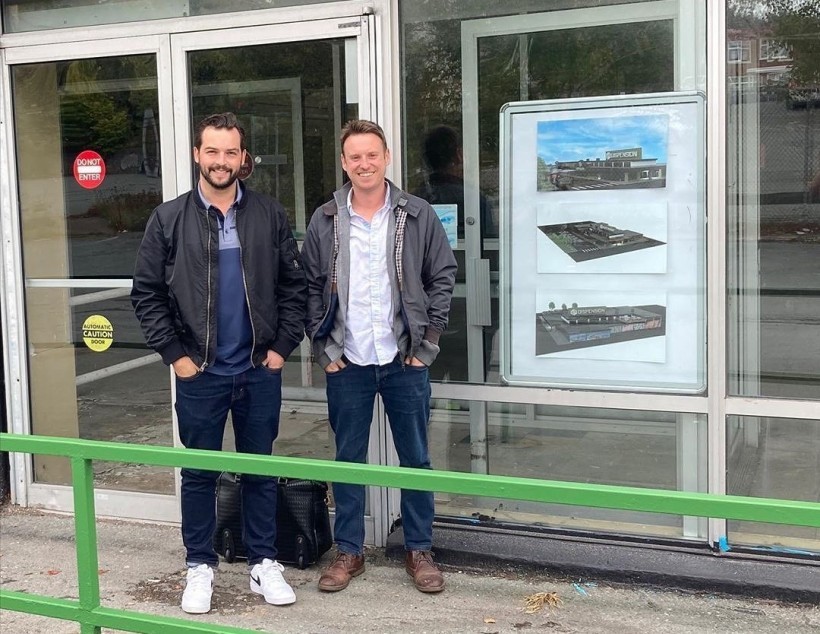
Audioptics Assesses Middle Ear
Audioptics Medical, whose device sees through eardrums to examine the middle ear, completed a $1.9 million funding round led by Innovacorp, an existing investor, and German medical device company Carl Zeiss Meditec AG.
Audioptics’ system allows ear specialists to diagnose illnesses of the middle ear, thus avoiding exploratory surgery and ensuring that patients receive the best care.
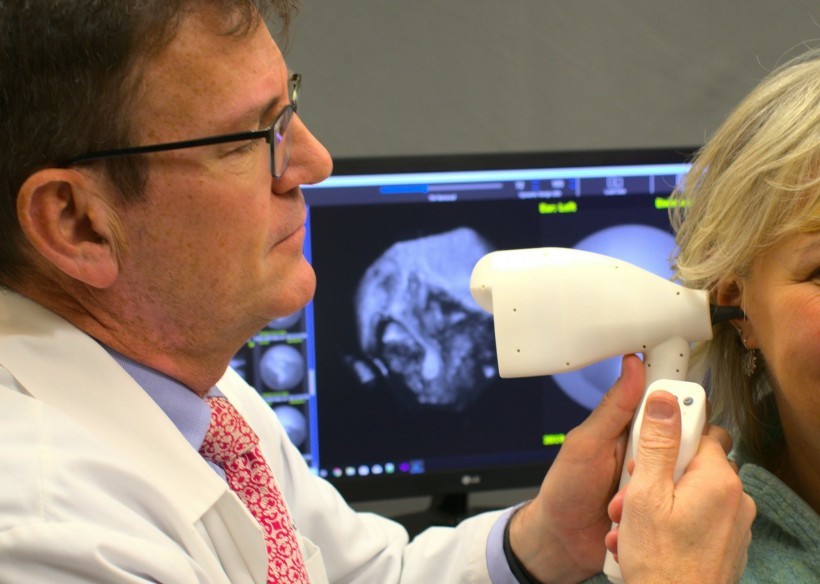
“Our mission [is] to apply cutting-edge imaging technology to solve the clinical challenges of conductive hearing loss, a disorder that affects more than 100 million people worldwide,” said company CEO Dan MacDougall. The raise helps the company move toward commercial development.
ValidCert Verifies Credentials
ValidCert, a blockchain- and SaaS-based venture working on the problem of fake credentials, has finished a soft launch of its technology with the Research Innovation and Commercialization Centre in Ontario.
The ValidCert system prevents individuals from using fraudulent diplomas and certificates by allowing institutions to host digital credentials for graduates. The graduates can allow chosen people, including HR execs, to access their records.
“Our objective is to protect the data and accomplishments of educational institutions and students to share and store information in a simple and secure way that will streamline processes to increase trust and engagement while reducing costs and workload,” CEO and Co-Founder Sanjay Khanna told Entrevestor.
Fake certification is a common problem. According to ValidCert, there were 2 million phony certificates in circulation last year and 300 unauthorized universities in operation.
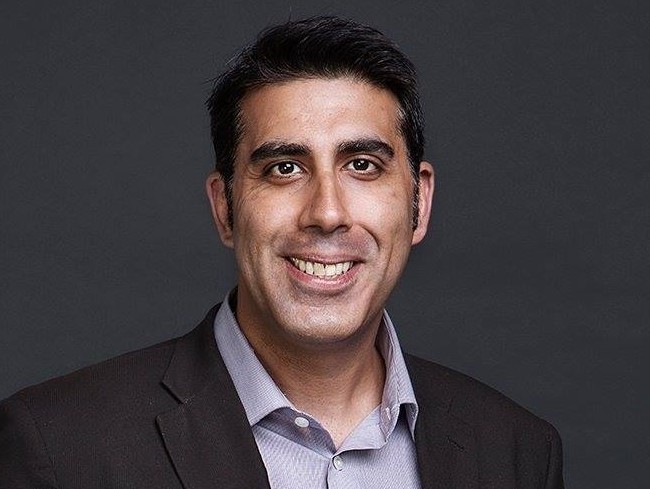
Modest Tree Heightens Reality for professionals
Immersive technology specialist Modest Tree launched Xplorer 2.0, the latest iteration of its extended reality enterprise software that places users in virtual worlds designed to enhance training, sales and demonstrations.
“We wanted to open up the world of XR to those who aren't virtual reality experts so we could support organizations who needed a rapid and accessible means to develop, adapt, and scale their own AR, VR, and XR content,” said Modest Tree CEO Sam Sannandeji.
German company Renk, a member of the Volkswagen group, purchased a stake in Modest Tree in September, 2019.